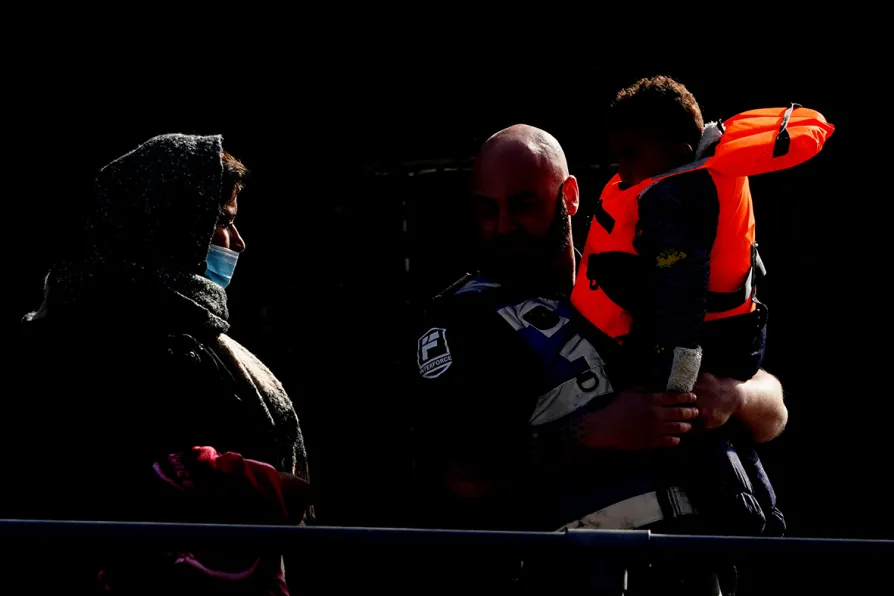
 An Interforce Security officer carries a young child as a group of people thought to be migrants are brought in to Dover, Kent, from a Border Force vessel following a small boat incident in the Channel
An Interforce Security officer carries a young child as a group of people thought to be migrants are brought in to Dover, Kent, from a Border Force vessel following a small boat incident in the Channel
PROPOSALS that could allow the government to deal with asylum-seekers in another country have been reinstated into the Nationality & Borders Bill despite a small Tory rebellion.
MPs rejected an amendment by peers to remove the measure from the Bill, voting 302 to 232 in a Commons debate today afternoon.
It was one of a series of proposals put back into the widely condemned legislation, undoing efforts by the Lords to remove the most damaging elements of the Bill.

DANIEL GOVER considers the procedural complexities awaiting a Private Member’s Bill in its passage through Commons and Lords

A recent Immigration Summit heard from Lord Alf Dubs, who fled the Nazis to Britain as a child. JAYDEE SEAFORTH reports on his message that we need to increase public empathy with desperate people seeking asylum












